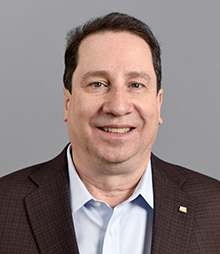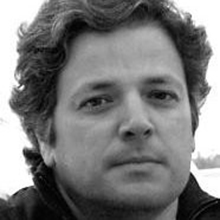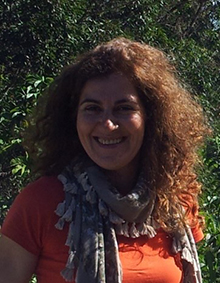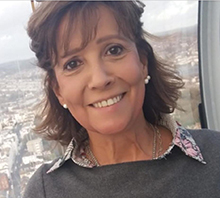Theme: Health, Mobility and Technology: Present and Future
In an era marked by rapid technological advancements and societal shifts, the intersection of health, mobility, and technology has emerged as a pivotal domain with profound implications for individuals, communities, and industries. The ongoing evolution in these areas not only transforms the way healthcare is delivered but also reshapes how we move, communicate, and interact with our environment.
mHealth, short for mobile health, refers to the use of mobile devices such as smartphones, tablets, and wearables in healthcare.
It encompasses the application of mobile technology to support medical and public health practices, including the delivery of healthcare services, health monitoring, data collection, and patient engagement.
The expertise of the panelists, including Daniel Rivera’s contributions to mHealth interventions, João Paulo Cunha’s advancements in biomedical engineering and mHealth applications, Teresa Galvão’s work in operational research and smart mobility, and Teresa Mendonça’s focus on the control of neuromuscular blockade, collectively offers a comprehensive perspective on the current state and future possibilities within the realms of health, mobility, and technology.
As the discussion unfolds, it aims to illuminate the significance of these converging fields, exploring the transformative potential, challenges, and collaborative strategies necessary to navigate the dynamic landscape of health, mobility, and technology
Participants:

Prof. Daniel E. Rivera
Short Bio:
Daniel E. Rivera is professor of chemical engineering at Arizona State University (Tempe, AZ). After receiving his Ph.D. in chemical engineering from Caltech, he worked in the Control Systems Section of Shell Development Company until joining the ASU faculty in 1990. His research and educational efforts have been highly transdisciplinary, resulting in applications of process dynamics and control principles to important problems in process systems engineering, supply chain management and optimized interventions in behavioral medicine. He is co-developer (with M. Morari and S. Skogestad) of the Internal Model Control-PID controller tuning rules (Ind. Eng. Chem. Proc. Des. and Dev., 25, 252, 1986; over 2000 citations per Google Scholar) that are widely used in practice and are included in every major process control textbook written in the past three decades. In 2007, Dr. Rivera was awarded a K25 Career Development Award from the National Institutes of Health to study control systems approaches for fighting drug abuse. He received a 2019 Distinguished Member Award from the IEEE Control Systems Society and was awarded the 2020 David Himmelblau Award for Innovations in Computer-Based Chemical Engineering Education from the AIChE CAST Division. He is a fellow of the Society of Behavioral Medicine (SBM) and the American Institute of Chemical Engineers (AIChE).

Prof. João Paulo Cunha
Short Bio:
João Paulo Cunha is Associate Professor of Bioengineering & Electrical & Computers Engineering (ECE) at the Department of ECE of the Faculty of Engineering of the University of Porto (FEUP), Portugal and senior researcher at the INESC-TEC: Institute for Systems and Computer Engineering where he created and coordinates the BRAIN – Biomedical Research And INnovation – research group and co-founded the Center for Biomedical Engineering Research (C-BER) that aggregates ~40 researchers. Prof. Cunha is also affiliated with the Portuguese Brain Imaging Network that he co-founded and co-directed between 2009 and 2012, the Porto Biomechanics Laboratory and is visiting professor at the Neurology Dep., Faculty of Medicine of the University of Munich, Germany since 2002 and at the Carnegie Mellon University – Silicon Valley Campus, USA, between 2016 and 2021. He serves as Scientific Director of the Carnegie-Mellon | Portugal program since 2014.
He earned a degree in Electronics and Telecommunications engineering (1989), a Ph.D. (1996) and an Habilitation (“Agregação”) degree (2009) in Electrical Engineering all at the University of Aveiro, Portugal.
Dr. Cunha is Senior Member of the IEEE(2004), member of the Editorial Board of NATURE/Scientific Reports (6th most cited journal in 2020) and Associate Editor of FRONTIERS/Signal Processing journal. He is also habitual reviewer of several IEEE journals and other relevant scientific journals such as PLoS ONE or Movement Disorders. He has supervised and co-supervised more than 15 PhD & Post-doc students in his areas of R&D. He received several awards, being the most relevant the European Epilepsy Academy (EUREPA) “Best Contribution for Clinical Epileptology” Award in 2002. He mentored, co-founded and contributed to several startups by advising and licensing intellectual property of innovative biomedical technology developed for several years in his lab, such as Biodevices (http://www.biodevices.pt), iLof-Intelligent Lab-on-Fiber (https://ilof.tech) and inSignals Neurotech (http://www.insignals-neurotech.com). Prof. Cunha is co-author of +250 scientific publications and 10 patents (shorturl.at/kyGNP), holding an h-index of 33 (Google Scholar), with +4,300 citations. According to Google Scholar, prof. Cunha is currently the 4th most cited author in “Human Motion Analysis” (https://tinyurl.com/ye27whvj), 6th in “Biomedical Sensors” (https://tinyurl.com/pcz9js2e), 10th in “Wearable Devices” (https://tinyurl.com/25r64d4d) and 10th in “Biosignal Processing” (https://tinyurl.com/53ep3nz4).

Prof. Teresa Galvão
Short Bio:
Teresa Galvão has a background in Mathematics from the University of Coimbra, Portugal, and a PhD in Sciences of Engineering from the University of Porto. She is an Associate Professor in the Faculty of Engineering of University of Porto and a senior researcher at INESC TEC in Porto. She has participated in several national and European R&D projects in areas related to smart cities, transportation systems and mobility. She collaborates regularly with the largest public transport companies in Portugal as researcher and consultant and was responsible for the development and implementation of several innovative systems for the operational planning, mobile ticketing, and passenger information in several of those companies. The academic and professional background led her to have a broad and multidisciplinary perspective of the current transportation and mobility challenges. Her main research interests are operational research, data science, human-computer interaction, and intelligent transportation systems. She has more than 100 scientific publications, supervised 9 PhD students and more than 100 MSc students. She is co-founder and CEO of OPT-Otimização e Planeamento de Transportes, SA, a company that develops innovative solutions for the optimization of public transports operation, the provision of passenger information and smart mobility management.

Prof. Teresa Mendonça
Short Bio:
Teresa Feio Mendonça is Assistant Professor at Mathematic Department of Faculty of Science, University of Porto (FCUP) and researcher at the SYSTEC. Has a background in Applied Mathematics and a PhD in Mathematics both from the University of Porto.
Main research area (Applied Maths): Mathematical Systems Theory and Linear Control, with particular focus on the theoretical and practical aspects of controlling systems with high levels of uncertainty, namely, the biomedical applications (anesthesia). The analysis and development of automatic control of delivery drug systems is the main goal of the research along with the cooperation with several other research groups. Teresa Mendonça is co-author of more than 150 scientific publications, book chapters and holding an h-index of 18 (Google Scholar), 13 PhD concluded ( areas: Mathematic, Applied Mathematic) and also master degree, pos-docs and grant students.
Team member of several national and international research projects. A special reference for FCT(National finantial) – GALENO and IDEA – Modelation and control for personalized drug dministration (Principal Researcher), with some partners, namely two Anesthetics Departments of Central Hospitals.
Coordination of Conferences, Scientific Meetings Invited sessions, cooperation and research protocols with several international department and professors.
IPC member of International Program Committees and Member of National and International Scientific Societies.
Professor Director, since, 2012 of the Master degree of Mathematical Engineering launched by the Faculty of Sciences, University of Porto. The course was created following demand by Mathematics students to have a more industry-oriented degree that could contribute to their integration in the working market in non-teaching activities. A considerable number of collaborations between the University and external partners, mostly companies and research interdisciplinary centers have been accomplished.

